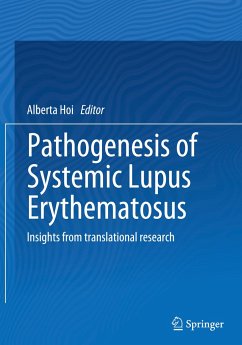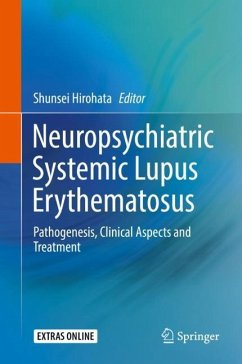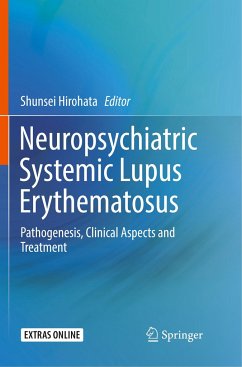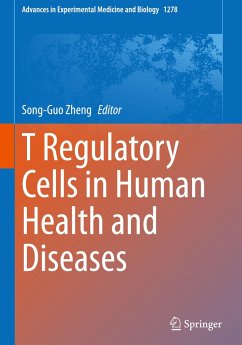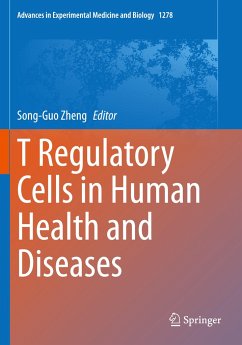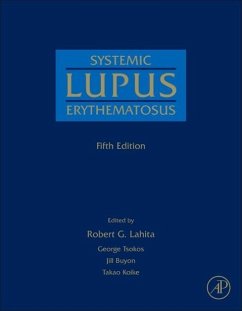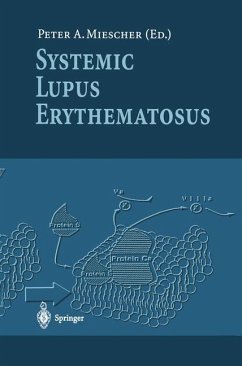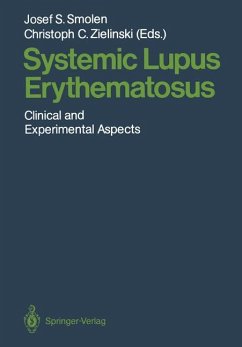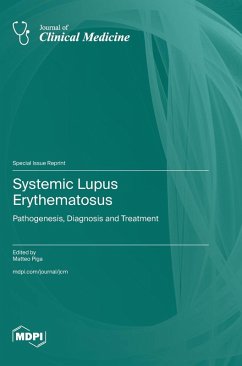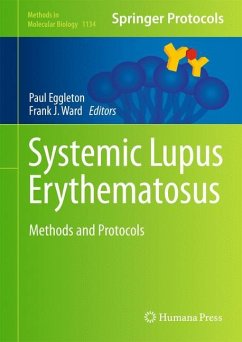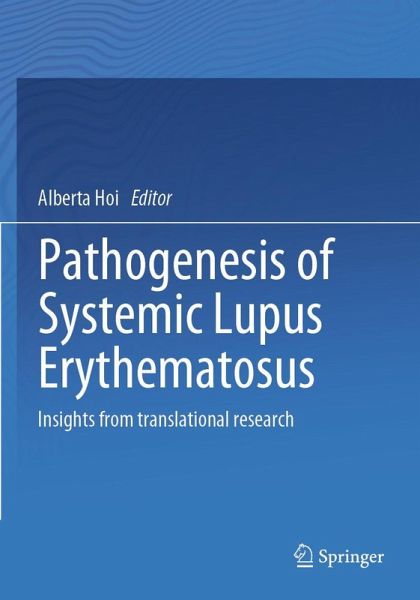
Pathogenesis of Systemic Lupus Erythematosus
Insights from Translational Research
Herausgegeben: Hoi, Alberta
Versandkostenfrei!
Versandfertig in 6-10 Tagen
83,99 €
inkl. MwSt.

PAYBACK Punkte
42 °P sammeln!
The scope of this contributed volume is to provide an overview of the latest translational research in the field of lupus pathogenesis, with particular emphasis on how these discoveries progress in parallel with therapeutic drug development. Systemic lupus erythematosus (SLE) is a multifaceted disease with a number of well-defined immune pathways that are dysregulated, resulting in an immune-mediated chronic inflammatory injury at target organs. As knowledge of these pathways evolves to provide opportunities for targeted drug therapy and lays the foundation for personalized medicine, clinician...
The scope of this contributed volume is to provide an overview of the latest translational research in the field of lupus pathogenesis, with particular emphasis on how these discoveries progress in parallel with therapeutic drug development. Systemic lupus erythematosus (SLE) is a multifaceted disease with a number of well-defined immune pathways that are dysregulated, resulting in an immune-mediated chronic inflammatory injury at target organs. As knowledge of these pathways evolves to provide opportunities for targeted drug therapy and lays the foundation for personalized medicine, clinicians and researchers need to keep up with the ever-expanding medical literature.
This book will critically appraise the current understanding of important immunological pathways that contribute to the pathogenesis of lupus. We will review the role of interferons as part of the innate immune defects that perpetuate the loss of self-tolerance in SLE. B cell hyperactivity, as a defining hallmark of SLE, and different strategies of B cell targeted therapy will be discussed. The role of co-stimulation or immune checkpoint molecules in activating B and T cells will be reviewed, as well as other cytokines that serve in the amplification loop promoting a more proinflammatory Th1 or Th17 responses. Intracellular targets, such as signaling molecules in the JAK/STAT pathway, or a variety of kinases and proteasomes, can cause a cascading downstream effect of transcriptional responses that are important in SLE.
Immune homeostasis can also be restored by bolstering the naturally occurring anti-inflammatory mechanisms. Glucocorticoid, as a potent natural anti-inflammatory hormone, can mediate its effects by recruiting histone deacetylase that serve to repress gene transcription. Glucocorticoid-induced leucine zipper is a gene upregulated by glucocorticoid that can be a potential target for development of anti-inflammatory strategy. Finally, T regulatory cells can be utilized to help restore to immune tolerance and are amongst the latest focus of therapeutic development in SLE.
This book will critically appraise the current understanding of important immunological pathways that contribute to the pathogenesis of lupus. We will review the role of interferons as part of the innate immune defects that perpetuate the loss of self-tolerance in SLE. B cell hyperactivity, as a defining hallmark of SLE, and different strategies of B cell targeted therapy will be discussed. The role of co-stimulation or immune checkpoint molecules in activating B and T cells will be reviewed, as well as other cytokines that serve in the amplification loop promoting a more proinflammatory Th1 or Th17 responses. Intracellular targets, such as signaling molecules in the JAK/STAT pathway, or a variety of kinases and proteasomes, can cause a cascading downstream effect of transcriptional responses that are important in SLE.
Immune homeostasis can also be restored by bolstering the naturally occurring anti-inflammatory mechanisms. Glucocorticoid, as a potent natural anti-inflammatory hormone, can mediate its effects by recruiting histone deacetylase that serve to repress gene transcription. Glucocorticoid-induced leucine zipper is a gene upregulated by glucocorticoid that can be a potential target for development of anti-inflammatory strategy. Finally, T regulatory cells can be utilized to help restore to immune tolerance and are amongst the latest focus of therapeutic development in SLE.





